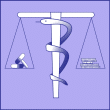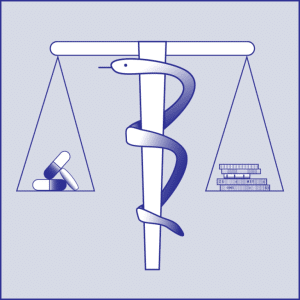Why a Fair Pharma Scorecard?
“Vaccine equity is the challenge of our times – and we are failing,” noted World Health Organization Director General Tedros Adhanom Ghebreyesus in April 2021. An unprecedented global effort saw vaccines for Covid-19 developed and distributed with record speed – 11 billion doses by the end of 2021. But their distribution was unequal and unfair, which exacerbated existing global inequality.
We believe that we can do better. The Scorecard is here to help show the way.
Who we are: The Pharmaceutical Accountability Foundation
The Fair Pharma Scorecard is a project of the Pharmaceutical Accountability Foundation (PAF). PAF is a Dutch-based non-profit organisation that takes action against unreasonably priced medicines. PAF investigates cases of pharmaceutical company abuse of market exclusivity rights to keep prices high at the expense of public health, and then works to inform the public, or takes legal action if necessary.
PAF was founded in July 2018 in response to the abuse of a dominant market position by the company Leadiant to raise the price of a treatment for a rare genetic disease over 500 times. Leadiant was fined €19.5 million by the Netherlands Authority for Consumers and Markets (ACM) on 19 July 2021, and other successful judgements in other countries have followed. Learn more about our cases here.
At the outbreak of the pandemic, PAF turned its attention to access to Covid-19 medical products.
Why use human rights to score the behaviour of pharmaceutical companies?
As of March 2022, 64% of the world population had received one dose of a Covid-19 vaccine (see chart below for latest statistics). But the distribution was not equal: 79% of populations in upper middle- and high-income countries (HICs) versus a meagre 15% in low-income countries. Vaccination programmes are at starkly different stages worldwide: according to Our World in Data, more booster doses were administered by high- and upper middle-income countries in 2021 than the total number of doses administered in low-income countries (LICs).
We are left with a huge imbalance between the incredible scientific advances of 2020 and the failure to move forward in matters of social equity.
This is unacceptable from a human rights perspective. The UN Guiding Principles on Business and Human Rights, and the Human Rights Guidelines for Pharmaceutical Companies in relation to Access to Medicines make clear that the pharmaceutical industry has responsibilities to respect human rights.
The notion that pharmaceutical companies have serious responsibilities under human rights law needs to be reinforced to drive change in this sector and compel pharmaceutical companies to change their practices. Translating human rights principles into concrete company behaviours that can be monitored and scored provides a tool that NGOs, governments and other stakeholders can use to hold them to those responsibilities.


